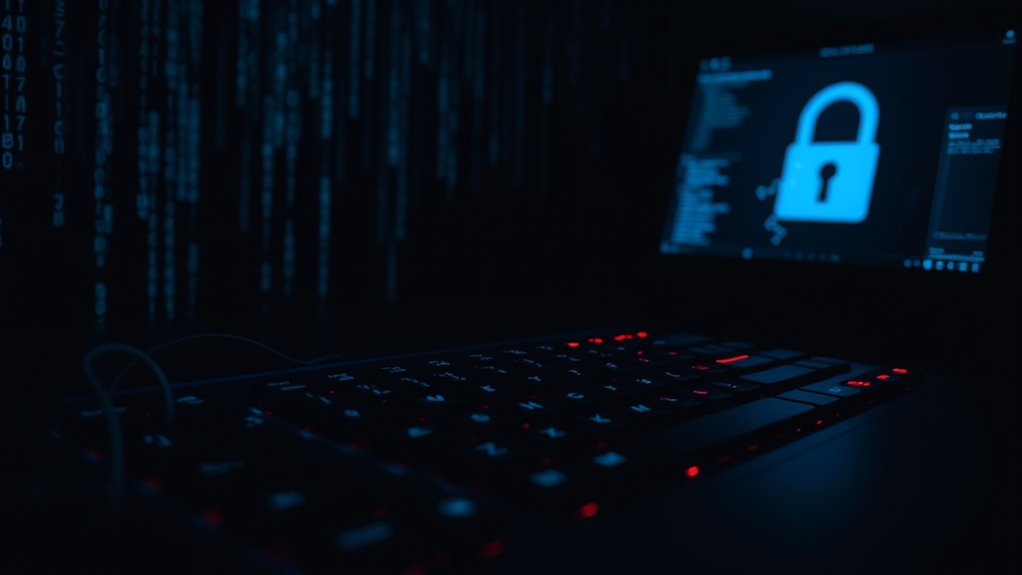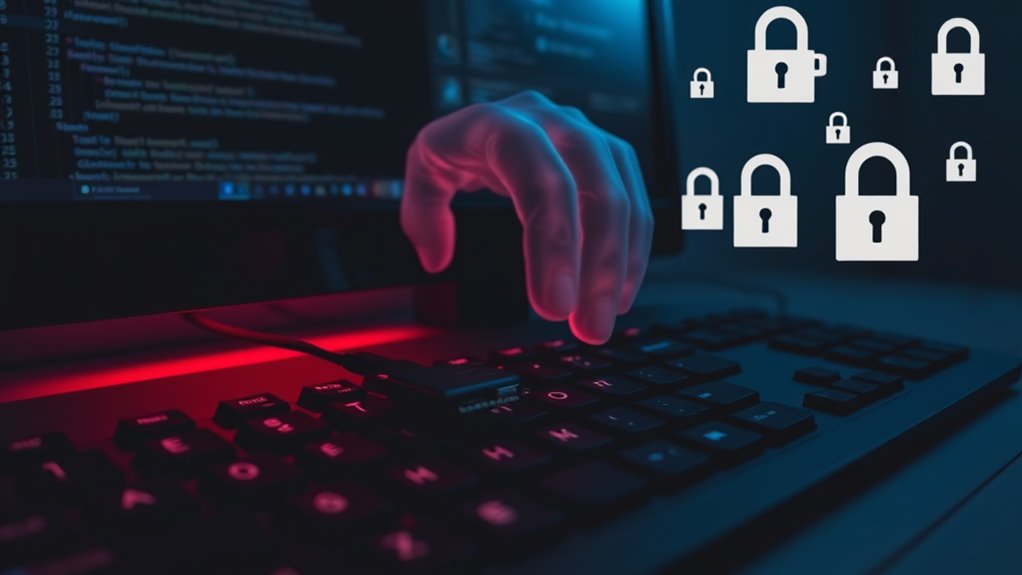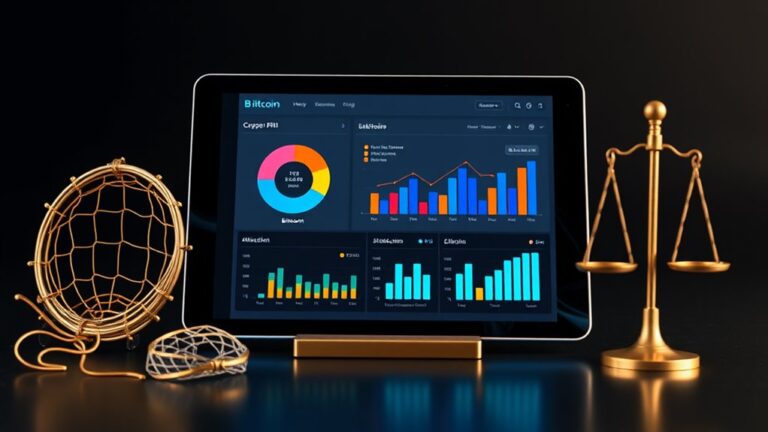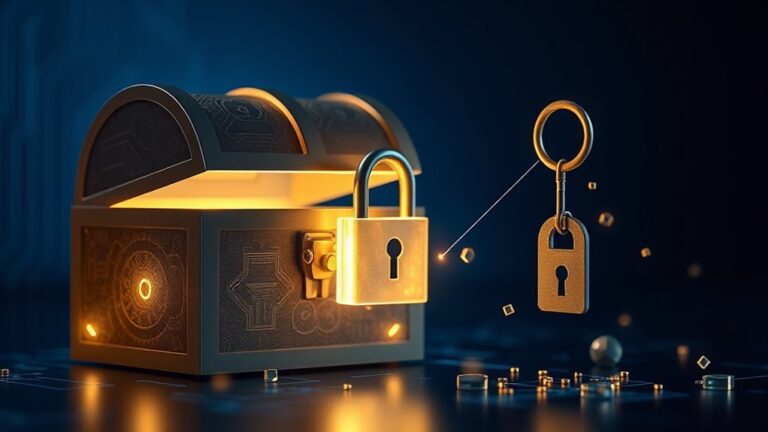What Is a Keylogger?
Note: This post may contain affiliate links, and we may earn a commission (with No additional cost for you) if you purchase via our link. See our disclosure for more info. The gold and crypto world is constantly changing. This is not financial, investment, legal, or professional advice. So, please verify the information on the gold and cryptocurrency provider’s websites.
A keylogger is a sneaky tool that logs every keystroke you make. It's both a watchdog and a potential thief. Sounds fun, right? These can either be hardware, like hidden devices, or software that lurks on your computer. They capture sensitive stuff, like passwords and credit card details. Yikes! While some people claim they're “just monitoring,” others have more malicious intentions. Stay alert; you might want to know what comes next about staying safe from these digital pests.

In the digital age, keyloggers are the sneaky little spies of the tech world. They lurk in the shadows, silently capturing every keystroke a user makes. What's the purpose? Well, that depends. Sometimes they're used for good—think parental monitoring or keeping an eye on employees. But let's be real; they also serve some pretty shady purposes, like stealing your identity or swiping your credit card info. It's a wild world out there.
These little jerks can capture sensitive data like passwords and chat messages. Imagine typing away, blissfully unaware that someone is watching—creepy, right?
Keyloggers are the ultimate digital snoops, capturing your passwords and messages while you type, completely unaware of their lurking presence.
Keyloggers come in different flavors. There are hardware keyloggers, which are physical devices that attach to your keyboard. It's like having a little bug sitting right there. Then, there are software keyloggers, which often sneak onto your device via malware or deceptive downloads. Surprise! You thought you were downloading a cool game, but instead, you welcomed a digital thief into your life.
API-based keyloggers take a more technical route, intercepting keystrokes through application programming interfaces. Sounds fancy, but it's just another way to invade your privacy. Additionally, keyloggers can track sensitive information such as credit card details and passwords, making them a significant threat to your online security. Legal uses exist for IT professionals which highlights that not all keylogging is malicious, but consent is crucial.
Form-grabbing keyloggers are even sneakier; they record everything you enter into web forms before that info is sent off. And let's not forget the kernel-based ones, which operate at a system level. That's like being a ninja—they don't need to be in plain sight to do their dirty work. Much like cryptocurrencies, keyloggers can be utilized for illicit transactions due to their ability to operate covertly across systems.
Frequently Asked Questions
Can Keyloggers Be Detected by Antivirus Software?
Well, can antivirus software catch keyloggers?
It's a mixed bag. Sure, some tools use fancy AI to sniff them out. But hardware keyloggers? Those are like ninjas—totally undetectable.
Plus, if a keylogger gets really clever with encryption, good luck. Antivirus programs can miss them, labeling them as “totally fine.”
Users need to stay on top of updates and protection. So, yeah, not a foolproof solution, folks.
Is It Legal to Use Keyloggers for Personal Use?
Using keyloggers for personal use? It's a legal minefield.
Sure, if you own the device or are a legal guardian, you might be in the clear. But don't get too cozy; consent is often a must.
Some places treat non-consensual snooping like a crime spree. You could face hefty fines or even jail time.
How Can I Protect Myself From Keyloggers?
Protecting oneself from keyloggers is essential.
First off, keep your software updated. Seriously, it's like putting on armor.
Avoid sketchy downloads—common sense, right?
Use two-factor authentication; it's a lifesaver.
A password manager can save you from typing too much.
And let's not forget using virtual keyboards to dodge those prying eyes.
Always be suspicious online. If it looks shady, it probably is.
Stay sharp, or you might just hand over your secrets.
What Are Signs That a Keylogger Is Installed?
If someone suspects a keylogger is lurking, there are telltale signs. A slow browser? Check. Mouse lag? Yup. New icons popping up? Definitely suspicious.
System settings changing without permission? Alarm bells! And if the antivirus decides to take a vacation? That's a big red flag.
Watch for strange processes in Task Manager too. If the computer feels off, it probably is. Trust your gut—it's often right when something's fishy.
Can Keyloggers Capture Encrypted Data?
Keyloggers don't care about encryption.
They're sneaky little devils that capture your keystrokes before any encryption kicks in. So, if you're typing away, thinking you're safe with those fancy locks on your data, think again.
They'll grab your passwords and credit card numbers in plain sight. It's like leaving your front door wide open while boasting about your state-of-the-art security system.
Spoiler alert: that won't stop a thief.












